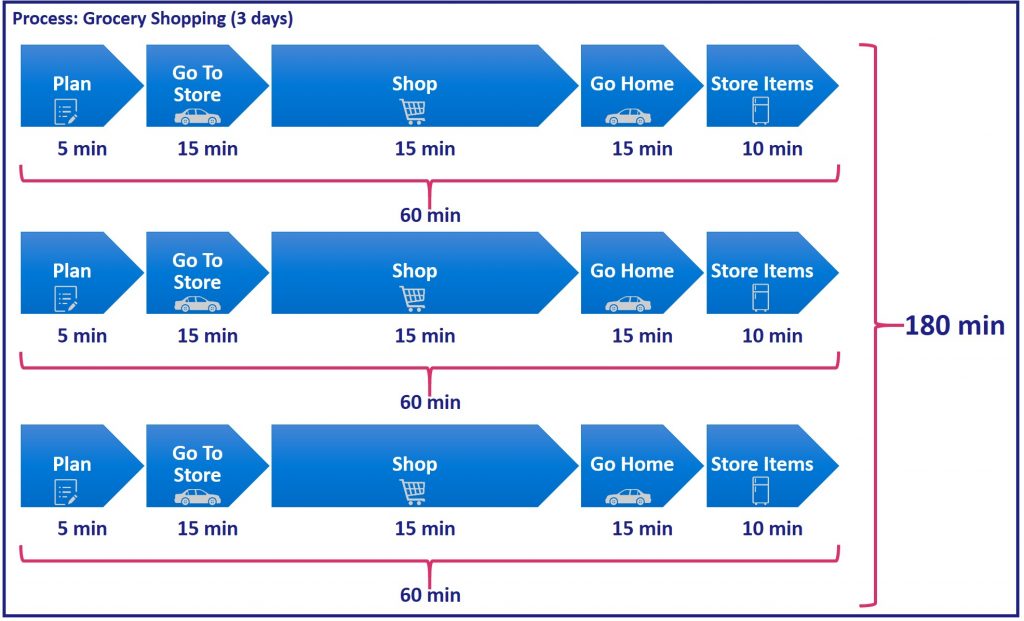I enjoy shopping as it gives me a first-hand look at the mass market, where I can make observations about the general economy and market trends. It is interesting seeing what new products are available, what products didn’t succeed (usually in the clearance bin), and what products are bought by what kind of people.
However, on days when I wish there were 48 hours, I opt to save time on this process.
Let’s begin with consolidating shopping trips.
Consolidate Shopping Trips
Here in Japan, it is common for people to shop for groceries every day. In some extreme cases, there are people who don’t own a fridge and consider their neighbourhood convenience store an extension of their kitchen.
One easy way to save time is to reduce the frequency of your grocery trips.
The grocery shopping process could look something like this:

In the following example, if we were to estimate the time it takes for each step, the entire shopping trip would take 60 minutes:

If you go shopping three times, then in total, it would take 60 minutes x 3 or 180 minutes.

If you were to go once in 3 days instead, it might increase the time you spend planning, shopping & storing groceries, but it probably would take less than 180 minutes (I would estimate to be around 90 minutes, as in the following example)


Over the three days, you could save 90 minutes. Over one month, this would come to 900 minutes or 15 hours. This is equivalent to about 2 working days!
Even if you don’t go daily, decreasing the frequency will help save you time.
Going alone is another time-saver, as the other family members can work on other tasks in the meantime. Imagine coming home tired from shopping to find a meal waiting for you!
Challenges of Not Shopping Daily
However, there are downsides to not shopping daily:
- Fruits & vegetables lose freshness
- Fresh seafood lose freshness
- Prepared foods lose freshness
- Too heavy to carry everything
- Larger storage spaces (refrigerator, freezer, pantry) needed
- Need to plan ahead
But don’t worry! We will cover how to mitigate these in upcoming notes.


